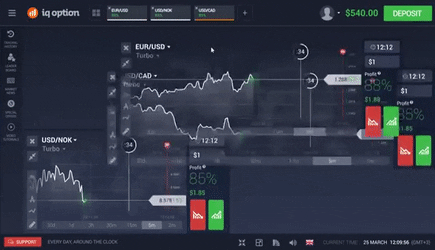The dynamism of the stock market is what attracts investors to it. On the other hand, this very dynamism also poses risks. Gains and losses are unavoidable aspects of the market index.
While suffering losses is inevitable, it often compels even seasoned traders into what we call ‘panic trading’. This leads to dramatic price fluctuations in the market. Markets often fluctuate not for a serious reason but due to market volatility, which is discussed in this blog.
Volatility refers to the movement of price within a specific period of time. Applying the right risk management, one can easily avoid any risks in the market that may arise due to market volatility and profit in long-term investment. Join an online capital market course to learn more about risk management. Read this blog to understand risk management and the strategies you can adopt to mitigate risks.
What is Market Volatility?
When discussing market volatility and its effect on stocks, understanding it first is essential. Investors use the term to describe sharp market changes and previously unpredicted prices. A sudden fall or rise in prices can result from market volatility. If prices change too much within a short period of time, the market is deemed highly volatile.
There are several factors behind a market becoming highly volatile.
- Performance of the company
- Socio-Political factors
- Industry-related factors
- Economic factors
If you plan on long-term investment in the stock market, you must come to terms with market volatility and any kind of price fluctuations it may cost. But with the help of a few risk management strategies in place, you can avoid any big hit to your investment.
What is Risk Management?
High volatility does not always have to be negative, but more often than not, it may prove to be detrimental. Sometimes a volatile environment can cause some risks to your investment. Risk management minimises these threats as much as possible so they do not negatively impact your finances in the long run.

If considering a long-term investment in the stock market, you should always have some risk management strategies to act as a safety net for your money. That way, you can minimise any negative impact.
Risk management strategies are essential even when the market is not volatile. These strategies help you create a safety net that ensures you do not suffer substantial financial loss. Diversifying your assets and sticking to your long-term plan can help you make a big profit in the long run.
What are Some of the Best Risk Management Strategies Against Market Volatility?
If you are thinking about investing but are scared of the risks associated with market volatility, here are some ways to minimise the volatility risk.
-
Diversification
The diversification of your portfolio is crucial when it comes to long-term investment. If you have many equities, you will be less likely to lose a lot of money in a volatile environment. Having most of your money tied to one place can be risky in the long run, as it will be impacted more severely during times of volatility.
-
Don’t be emotional
One of the main rules of investment is not being emotional about your money. Sometimes people take drastic decisions when they see their equities losing value. But you must remember that it is all a part of investing in the long run. Do not abandon your investment plans because of volatility, as these market ups and downs are all a part of the investment.
-
Don’t abandon your plan
Continuing the previous point, many people panic and abandon their investment plans once the market becomes unstable. Especially if you are just starting in this field, a sudden change in market value can be scary. Stay on your long-term plan. Talk to financial professionals about how to handle the situation and make changes in your plan if necessary.
-
Balance the risks and rewards
Allocating assets across different categories is vital. It is only the starting step of investing long-term. Balancing the risk and reward profile while allocating your assets will ensure your money is never too much at risk. Low-risk investments also have low-return. It is essential to balance your money while investing to have financial security even when the market is volatile.
-
Use volatility
And last but not least, use market volatility to your advantage. If you understand the inner workings of the market and the company stocks, you can buy cheaper stocks and sell them at a higher price, all thanks to market volatility.
-
Do nothing
Investment is more than just buying and selling. Sometimes it’s just about letting natural market phenomena run their course and do nothing. When the market is volatile, instead of panic buying or selling, choose to do nothing and have more faith in your long-term plan.
Things to Remember While Investing
If you are beginning to invest in the stock market, always remember that there are no sure-fire ways of attaining success overnight. But some rules can help you make a respectable profit in the long run.
- Never follow the crowd. This almost always backfires as most people who invest do not really know a lot about investing.
- Always make informed decisions based on research and expert opinion.
- Lastly, only invest in businesses that you understand. Often people are influenced into investing in businesses they do not understand well. It can prove detrimental. You should invest in the businesses you understand to make educated decisions and keep your money safe.
Conclusion
Market volatility is a natural process, but it can be challenging if you are new to investing. Take the help of financial professionals while investing your money in stocks, study market patterns, learn about the 1% rule of investing, and stop-loss and take-profit points. Being educated is the key to managing your money best.
If you want to kickstart your career in finances and understand risk management better, then Imarticus Learning’s IIM Lucknow finance course is just what you need. This advanced management programme in financial services and capital markets teaches cutting-edge financial techniques with the help of immersive learning and a world-class faculty.


